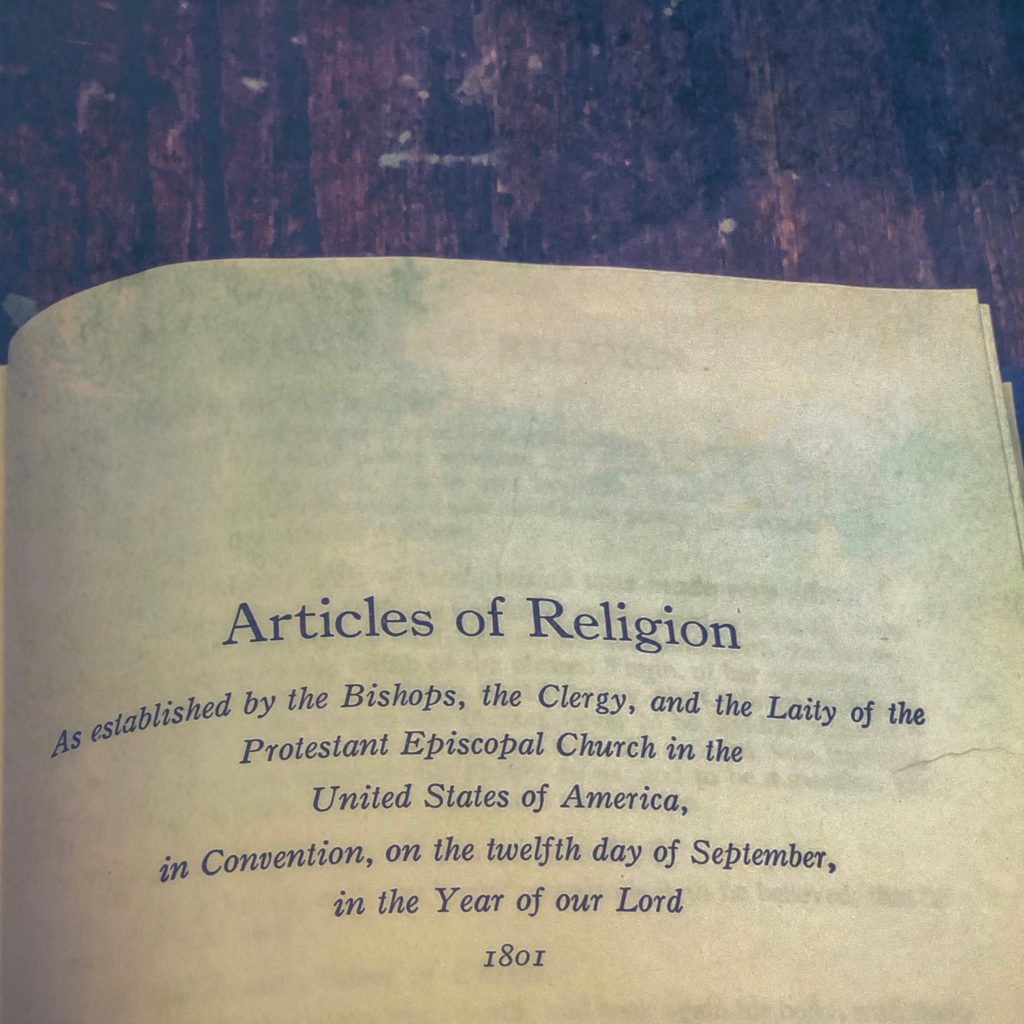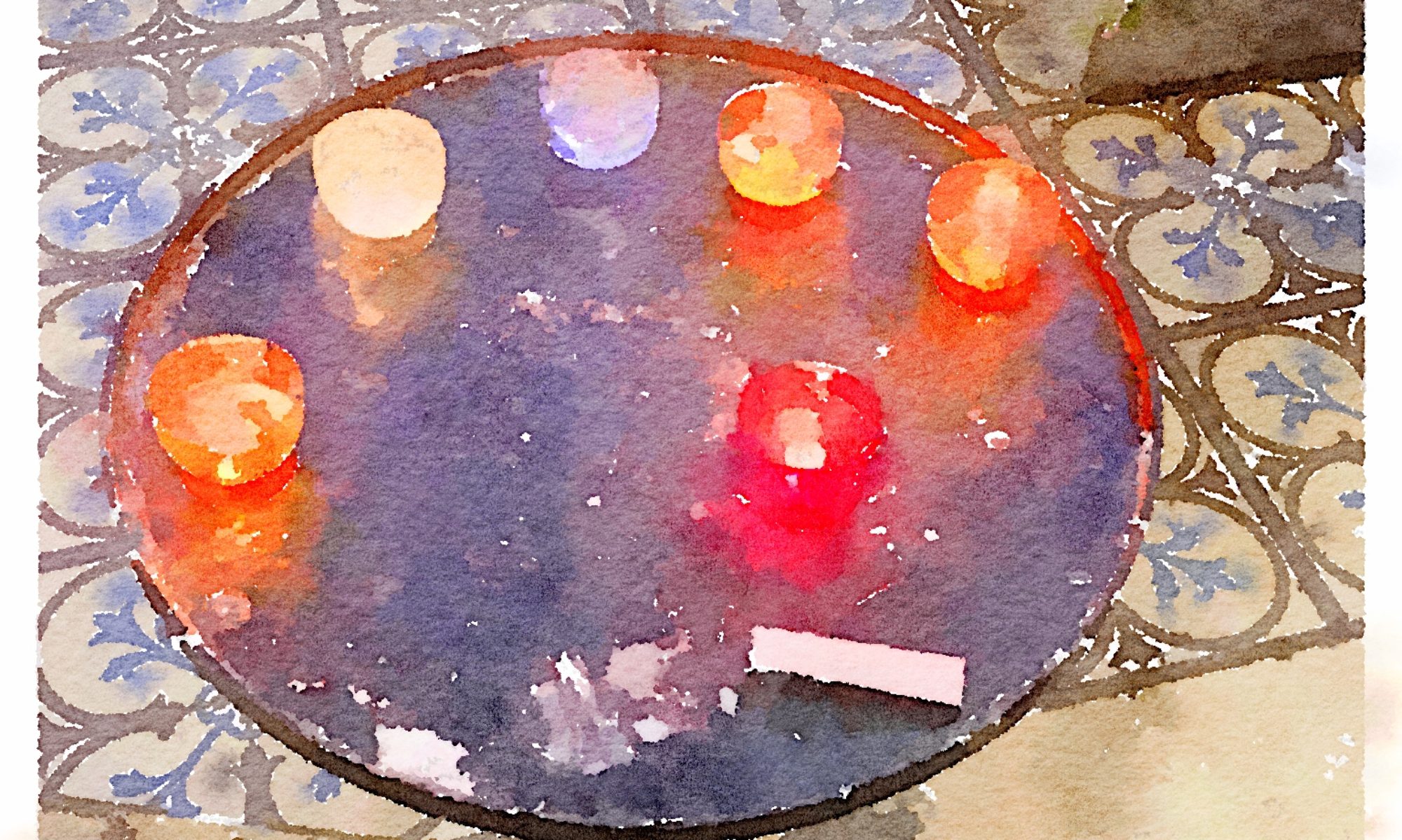
Christ in the truth of our nature was made like unto us in all things, sin only except, from which he was clearly void, both in his flesh, and in his spirit. He came to be the Lamb without spot, who, by sacrifice of himself once made, should take away the sins of the world; and sin (as Saint John saith) was not in him. But all we the rest, although baptized and born again in Christ, yet offend in many things; and if we say we have no sin, we deceive ourselves, and the truth is not in us.
by David Rowe
Here there is comfort and there is challenge. There is ‘like unto’ and there is utterly unlike. There is familiarly human and there is wholly Other. There is spotless sacrifice and there is sin taken away. In short, there is us and there is Him.
The incarnate Christ was completely like us, and yet there is no one like Him. Of all the humans who have ever, or who will ever, come into existence, there is only one who failed to conform to our fallen sinful state. And it’s not for want of opportunity. According to formal estimates, over 100 billion creatures of the species homo sapiens have probably been born in the last 50,000 years. But not one of them has remained untouched by the stain of sin. So Jesus is utterly unlike us.
And yet, as the Article affirms, Christ comprehensively knows our state. He has experienced birth, childhood, puberty, and adulthood. He knows a mother’s love, the rich joy of companionship with friends, the tearing grief of bereavement, and what it is to be betrayed. He knows hunger, prayer, weariness, pain, laughter, temptation, baptism, feasting, and death. He is not alien to our condition, a far-off superhero flying through the spiritual sky. He washed, ate, slept, and used the toilet. We do not have a high priest who is unable to sympathise with our weaknesses, but one who has been tempted in every way. Yet without sin. He was made like unto us in all things, save this one.
Why is Christ’s unique sinlessness so significant? Firstly, because it is part of the proof that He is God. God from God, Light from Light, true God from true God. Jesus is not just an exceptional human, or a man who ‘tapped into’ the divine, but He is God in the flesh. Article XV allows no grey area to those theologies which hold that Jesus was enlightened but not unique (as is the case in Hinduism and Islam, for example), nor for those which see Him as anything less than God incarnate (eg. Mormonism, Jehovah’s Witnesses, Arianism, etc.). Christ is not one of many: He is the One. Jesus is not a Lord, but the Lord. So when Paul gives ‘Jesus is Lord’ as the simple formulation to discern whether a teacher is speaking by the Spirit of God or not, we can trust that it is because the uniqueness of Christ must be at the heart and foundation of our faith.
Secondly, the sinlessness of Christ is significant because it is fundamental to our own forgiveness and salvation. ‘For our sake he made him to be sin who knew no sin, so that in him we might become the righteousness of God,’ says St. Paul. (II Corinthians 5:21) ‘He appeared in order to take away sins; and in him there is no sin,’ asserts St. John. (I John 3:5) Our salvation is bound up in Christ’s sinlessness because, as St. Peter teaches, our redemption was not accomplished ‘with perishable things… but with precious blood, as of a lamb unblemished and spotless’. (1 Peter 1:18-19) By becoming participants in Jesus’ divine and perfect sinlessness, we escape the just results of our sin; we have peace with God through Christ and in Christ. No one else could possibly make ‘a full, perfect, and sufficient sacrifice, oblation, and satisfaction, for the sins of the whole world.’ The Sinless One achieved what only He could.
And thirdly, the sinlessness of Christ is significant because, in light of it, even our own best efforts at piety are shown up for the self-centred, vain, and rotten things they are. Christ’s incarnate sinlessness shows that mortal flesh is not de facto sinful, yet we are still corrupt, crooked, venal, and vacuous. ‘All our righteousnesses are as filthy rags’ as the King James Version puts it. And it is worth noting that Article XV is careful to say that being baptised and saved will in no way except us from this rule. We Christians, like all the rest of humanity, offend in many things, it says, and we are fooling ourselves if we make any pretence towards true virtue. The righteousness we have is His. The effect of this stark and unambiguous contrast between Christ’s perfection and our degradation is at least two-fold: on the one hand it should keep us in a mindset of continual repentance, knowing our deep ongoing need of His grace; and on the other it can show us how deeply and richly we have been forgiven – we are invited, in recognising that we have been forgiven much, to love much.
All theology should lead to doxology, as J.I. Packer is fond of saying. How then do we take Article XV and the significant truths it affirms, and plant them in the soil of praise and devotion? How do we step beyond merely agreeing with the Article, onto applying its insights in private and corporate worship? Here I would like to suggest how the seasons of the Church Year might be approached in light of these sentences.
i. During Advent, as we groan in expectation of the new life about to be born, we can focus on our need of a sinless saviour, aching for Him. We are the people walking in darkness; let us not deceive ourselves and pretend that we can achieve our way into the Light. We might also see that, before He became a baby, God first became an embryo, sanctifying even the precarious pregnancy process that we all share. In this season let’s intercede for our dark world with a thirst for His goodness, with patient endurance in labour pains, and with hopeful expectation of His coming.
ii. During Christmas, we might focus on the truth that Jesus was made like unto us in all things. Christ didn’t just appear to be human – His enfleshment was real, not a trick of the light. And as we remember His infancy, let us be willing to be beginners in our faith. Babies. Let us be dependent on our Father to feed and grow us, and also be forgiving of our own frailties and mistakes. In this season let’s choose to pray with simple, joyful words and simple, joyful faith.
iii. On Epiphany and during the Ordinary Time beyond it, may our eyes grow wider. May we increasingly recognise how different Jesus is to us – that this human, born two millennia ago, is in fact the Word who was before all things, and in Whom all things hold together. In this season let us be dazzled by the glory of the one and only Son, and pray with reverential gladness, praising Him and delighting in His brilliance.
iv. During Lent, as we remember Jesus’ temptation in the midst of human weakness, we should remember that He knows what it is to undergo temptation and spiritual warfare. He understands. May we also take inspiration from His sinlessness. He overcame temptation, so let us beat our bodies into submission so that we can run with endurance the race that is set before us. And let’s pray with deep and sincere repentance, knowing that we still offend in many things.
v. During Holy Week, we can renew our gratefulness that the Lamb of God has taken away the sins of the world. Let us know our great need of Him, and be thankful for the institution of the Eucharist, through which our physical bodies are fed with the Bread of Heaven. Let our words be few.
vi. During Easter, we can recognise that not only was Christ made like unto us, and not only did He offer Himself as a sacrifice, but also that by His glorious resurrection He ‘destroyed death and brought life and immortality to light’. Let us feast and be glad! Death has no dominion over us, because we are in Him! In this season, may our prayers bubble over with joy and gratitude, and our worship be euphoric.
vii. On Pentecost and the Ordinary Time beyond it, let us be filled with the Spirit. May we truly know that, because of Christ’s sinless offering of Himself, we are now the Temple of the Holy Spirit, the dwelling place of the Most High. May our prayers (in many languages!) be full of faith and power.
Article XV articulates a foundational truth, but may it not only be a truth that is foundational to good theology or good teaching, but also one that becomes a cornerstone for life in all its fullness. Jesus was really like unto us, therefore we can really be like unto Him. ‘I gave you an example,’ He said in John 13, ‘that you also should do as I did’. We have no need to make a pretence of our perfection, but neither should we shield our eyes and lower our sights. St. Paul called himself an imitator of Christ; we should be too.
David Rowe is studying for his Masters of Divinity through Trinity School for Ministry, whilst also being a stay-at-home dad and a Tolkien addict. Based in Charleston, SC, he was born in Sheffield in England and has also lived in New Zealand, Scotland, and Virginia. He is the author of The Proverbs of Middle-earth and is a postulant for Holy Orders in the Diocese of South Carolina.
